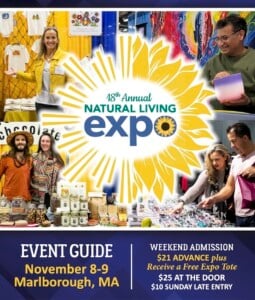by Andy Corbley, Good News Network
A bird lover has been rescuing and relocating snowy owls from the Boston airport for over a decade, ensuring 900 of these majestic hunters can return home after winter. The star of a recent award-winning documentary, Norman Smith, a raptor specialist at the Massachusetts Audubon Society, says it’s been an incredible experience to learn about these birds since he pulled the first one off the runway in 1981. Logan International Airport (BOS) is no stranger to snow, nor the owls of the same name that most people would associate with the Arctic. The reality is that BOS shares many similarities to their Arctic homes.
by Jennifer Hobson, The Guardian
There was an incident seven years ago that changed my life. I saw an adult grey seal with a plastic pink flying ring toy so deeply embedded in her neck that she was practically dead. It was stopping her from feeding because it was digging into her and she couldn’t extend her neck – the wounds were horrific. It broke my heart. From that moment on, I became obsessed with seals and protecting them from the dangers of plastic flying rings. I first encountered seals – and began to love them – when I became a volunteer for RSPCA East Winch Wildlife Centre 15 years ago.
by Anne-Marie Hoeve, Imagine5
Melati Wijsen was only 12 when she began her fight against the plastic waste piling up all over Bali. After years of tireless campaigning she finally achieved her goal: getting single-use plastic banned on the beloved island she calls home. 5 talks to her about making change happen.
by Nicole Leonard, WHYY
On a large grassy plot in the Holmesburg neighborhood of Philadelphia, about three dozen volunteers formed a huddle around Collie Turner. To the side, gardening rakes of various sizes were lined up in the grass. A bucket was filled up with gardening gloves and a pile of plastic watering cans was at the ready. “I want to be the first person to officially welcome you to the sunflower farm at Pennypack,” Turner told the group, who clapped and cheered. Right now, the Pennypack Sunflower Farm is not much more than a flat patch of land and dirt that used to be military housing.











